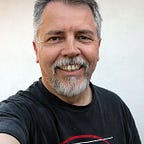The Universe is a startup
Earth is 4.54 billion years old. It was born 9.247 years after the Big Bang, which happened 13.787 billion years ago. Meaning that our planet is a third the age of the Universe.
Earth’s own role as a life-supporting planet began maybe 3 billion years ago. Nobody knows exactly, but scientists do know that in a billion years or less the Sun will be too large and hot to allow the persistence of photosynthesis on Earth, and eventually the Sun will age into a red giant with a diameter the size of Earth’s orbit.
Some additional perspective: the primary rock formation on which most of Manhattan’s ranking skyscrapers repose—Manhattan Schist—is itself about a half billion years old. In The Bronx there are rocks 1.5 billion years old.
In another 4.5 billion years (as the Sun approaches its red giant stage), our galaxy will merge with Andromeda, 2.5 million light years away, but spinning like a frisbee in our direction. The two galaxies will begin merging (not colliding, because nearly all stars in both are too far apart for that) around 4 billion years from now, and will complete a combined galaxy about 7 billion years from now. Both galaxies have been around for most of the Universe’s history.
Here’s a simulation of that future. Bear in mind that it covers the next 8 billion years, or from roughly when the Universe ages from 13.5 to 21.5 billion years old: in human terms, from eighth grade to senior year in college.
That ratio, however, would only be relevant if humans lived for billions of years. That’s because all the estimates of the future age of the Universe run across spans in the trillions of years.
In that context, the Universe is still getting started. So maybe the forms of life we know on Earth are just early prototypes of what’s to come in the fullness of time, space and evolving existence. And perhaps, so far, the only ones as well.
